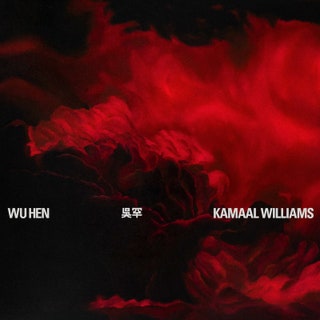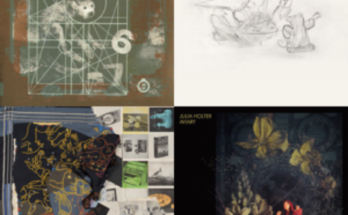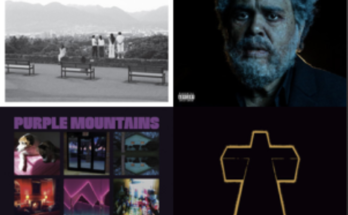When someone today hears the word “jazz,” their minds are likely to jump to the mid 20th century and the giants of the genre at its most lucrative time. People like John Coltrane, Miles Davis and Louis Armstrong, despite having long passed away, are typically still seen as the faces of jazz music due to the sheer impact they had in shaping the genre. The consequence, however, of jazz being so tightly married to its founding fathers is that the genre has largely lost relevance in the mainstream as time has gone on. While newer jazz artists like Kamasi Washington and Marquis Hill are excellent musicians and relevant in their field, the genre they perform is too often viewed as a dead one, a thing of the past.
The mainstream’s connotations of jazz being an antiquated genre are precisely why an innovative up-and-comer like Kamaal Williams rejects the notion of his music being associated with the word “jazz.” Despite listing people like Davis and Coltrane as influences, Williams regards his sound as something entirely unique — a difficult stance to argue against considering the unorthodox fusion of genres that lies at the heart of his music. Melding sounds of jazz, funk and hip-hop production, the London native has crafted a sound he proudly claims to represent his somber, urban British environment much like how his American contemporaries captured the vibrance of Harlem, New Orleans and Chicago with their music during jazz’s golden age. Speaking on the topic, Williams explains, “The pace of London is very fast. Everything’s two inches in front of you — there’s no horizon in London, it’s just buildings and capitalism. We gotta survive out here, and this is our way of expressing that.”
Kamaal Williams’ 2018 album, The Return, saw him masterfully paint the numbingly hectic London scene he’s described by utilizing a unique blend of musical stylings to produce a smooth mix of sounds that adhere to unusual but well-structured rhythms. The end result was a one of a kind project that flowed in ways unlike any other jazz records being released today. In his latest full-length LP, Wu Hen, Williams finds a comfortable medium building upon his trademark style while also leaning more heavily into traditional jazz elements than he has before on any other project.
Said traditional jazz elements are introduced without haste on the album’s opening track, “Street Dreams.” Dainty harp strums begin the song atop an ominous, gradually building violin tremolo that crescendos into plaintive a saxophone solo with faint crowd chatter lingering in the background — a tense melody that kicks off the project on a rather eerie yet intriguing note. “One More Time,” the following track which Kamaal released as a teaser single for the album, works to abruptly flip the tone set by the prior song. Here Williams is back full force using his Nord Electro keyboard to whip up his hallmark hip-hop production influenced jazz sound. A gravelly voicemail sample overlaid with repeating synth scales and frantic drums set the pace for the upbeat track, as Williams uses a funky slap bassline that gracefully matches the continually evolving synth patterns to complete yet another song that somehow welds together a plethora of frenzied sounds in perfect harmony.
“1989” follows and serves as a slower, more stripped back part two of “One More Time,” as the former track is flowed into seamlessly by the latter and wonderfully decelerates the lively instrumental, much like the sun would melt away icicles after a boisterous blizzard. Not long after the soothing listen arrives the album’s best track, “Pigalle.” Named after a sect of downtown France known for its bustling nightlife, the song flaunts a rapid tempo, freestyle saxophone, catchy piano refrains and relentlessly swift upright bass plucks that all combine to paint a vibrant picture of the neon lit and history-ripe city. Complete with a drastic change in tempo midway through the song to depict the city’s daytime calm, Kamaal Williams’ first stab at freeform jazz is completed with impeccable aptitude.
Williams follows up the album’s magnum opus with “Big Rick” and “Save Me,” which act as sister tracks similarly to “One More Time” and “1989.” This second pair of partner tracks is a welcome recurrence and does not come across as overdone due to Williams’ decision to flip the functions of the two songs in regard to the album’s pacing. “Big Rick” serves as a slower burn that flows into the far groovier and more upbeat “Save Me,” both of which contain the trademark hectic percussion pattern, punchy slap bass and warbly synths to reinforce the presence of Williams’ boldly unique style on the record.
“Mr Wu” takes precisely the same synth loop from the prior song and weaponizes it to deliver one of the album’s more memorably groovy tracks behind funky electric bass picks, upbeat drum patterns and a spirited saxophone. In another first for Williams, “Save Me” is the only track in his discography that boasts a vocal feature and it is executed seamlessly. The melancholy tune slows down the racing pace of the album like a diligent highway patrolman and perfectly sets the tone for the closing track, “Early Prayer.” Utilizing lingering synths and a soothing, four-minute-long saxophone solo, Williams evokes a meditative tone and brings the project to a slothful close.
Kamaal Williams set out with a clear blueprint for Wu Hen, and that was to build further upon his hallmark sound while also pushing his limits by experimenting with some traditional jazz techniques and song structures. While Kamaal’s concentrated effort to incorporate traditional jazz did result in some of the album’s least memorable moments — like “Tolouse” — it also provided some of its best — like “Pigalle.” Overall, the blend of technical jazz and Williams’ distinctive unconventional style work in harmony to create an excellent new wave jazz record that exhibits Kamaal’s talents in more ways than one. A fantastic balance of familiar and experimental, Wu Hen is an album no jazz enthusiast or fan of groovy music can afford to miss.
Kamaal Williams: Wu Hen




